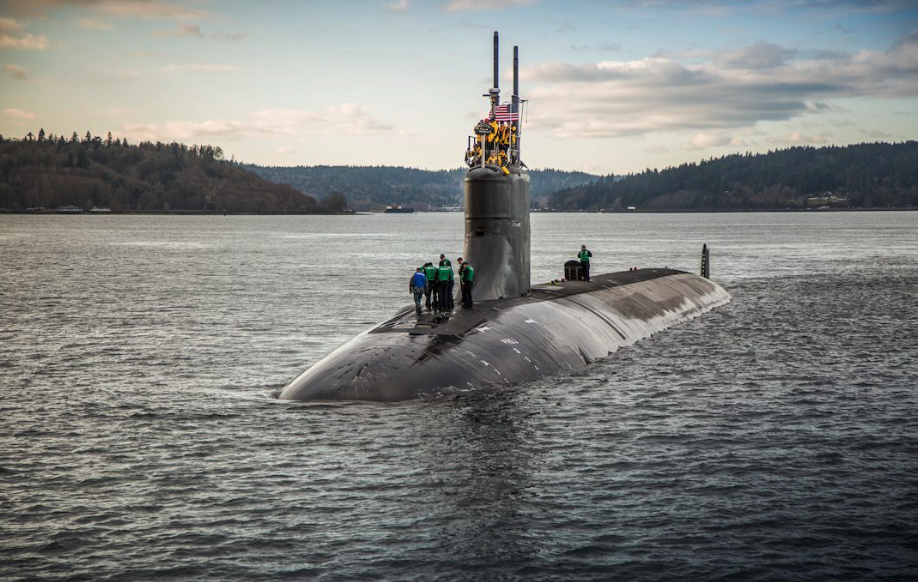U.S. Navy Investigation Finds ‘Accumulation of Unit-Level Errors’ in Submarine Grounding

The U.S. Navy has released its report into the submerged grounding of the nuclear-powered fast-attack submarine USS Connecticut on an uncharted seamount in the South China Sea in October, revealing an “accumulation of unit-level errors” leading up to the incident.
The investigation ultimately determined the grounding was preventable. The submarine’s Commanding Officer, Executive Officer (second in command), and “Chief of the Boat” were previously relieved of their command “due to loss of confidence.”
The USS Connecticut (SSN 22) grounded on an uncharted seamount “while operating submerged in a poorly surveyed area in international waters in the Indo-Pacific region” on October 2, 2021.
Following the incident, USS Connecticut returned to Guam for damage assessments. Although the propulsion plant of USS Connecticut was not impacted, the submarine is expectd to be unavailable for operations “for an extended period of time” due to the damage sustained in the incident.
The incident also resulted in minor injuries to were sustained by eleven crew members.
According to the heavily redacted report, the grounding “resulted from an accumulation of errors and omissions in navigation planning, watch team execution, and risk management that fell far below U.S. Navy standards.”
“Prudent decision-making and adherence to required procedures in any of these three areas could have prevented the grounding,” the report adds.
The investigation also highlighted specific areas for improvement in the deployment training and certification process, which the Navy is urgently implementing across its Submarine Force. The investigation also includes 28 corrective actions, of which 14 actions are complete, 13 actions are in progress, and one is enduring.
Rear Adm. Christopher J. Cavanaugh, Commander of the U.S. 7th Fleet, further recommends that the Commanding Officer (CO), Executive Officer (XO), Navigator (NAV), Officer of the Deck (OOD), Assistant Navigator (ANAV) face “nonjudicial punishment” for violation of “Dereliction of Duty” and “Improper Hazarding of a Vessel” for negligence and that the administrative chain of command initiate detachment for the cause.
“In implementing these significant improvements, the Navy will become a more effective fighting force. Given the inherently dangerous nature of Naval operations, we cannot become a risk-averse or zero-defect organization, but prioritizing safety will engender a culture of greater attention to detail in operational tasks, enhanced procedural compliance, and a questioning attitude that constantly seeks improvement – which increases the readiness of our forces and the Navy’s lethality in combat,” the Navy said in a statement.
The unclassified report can be found here.
